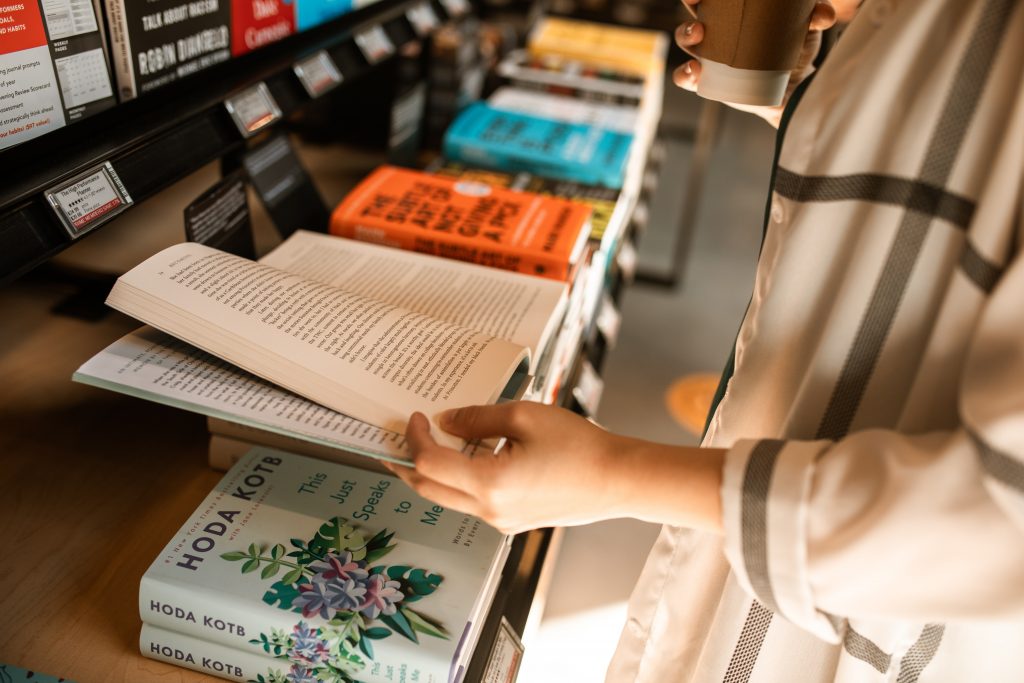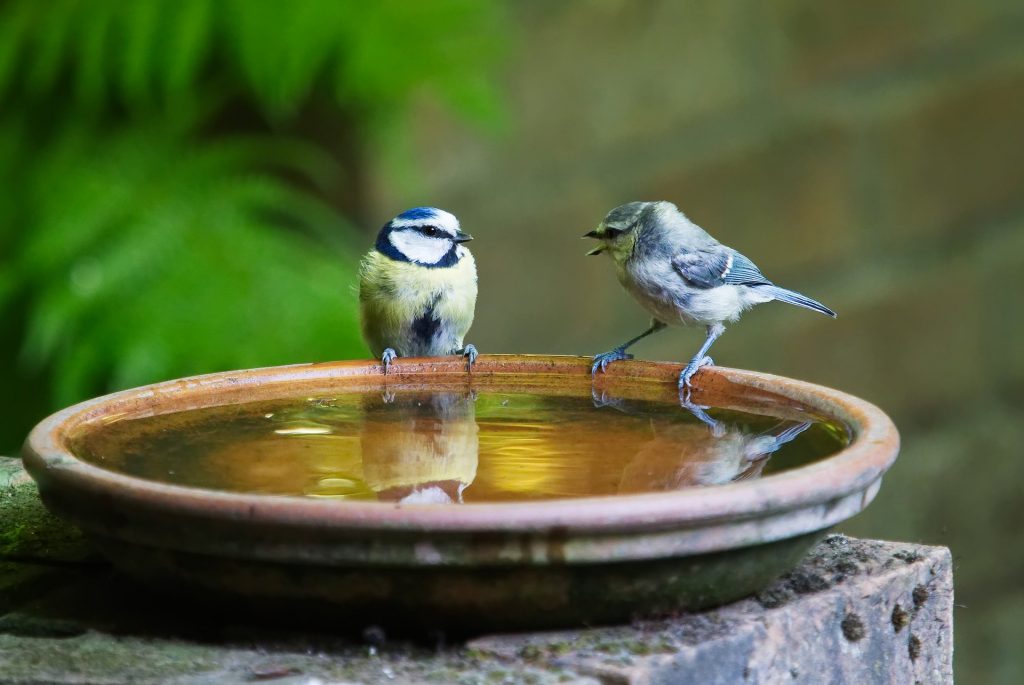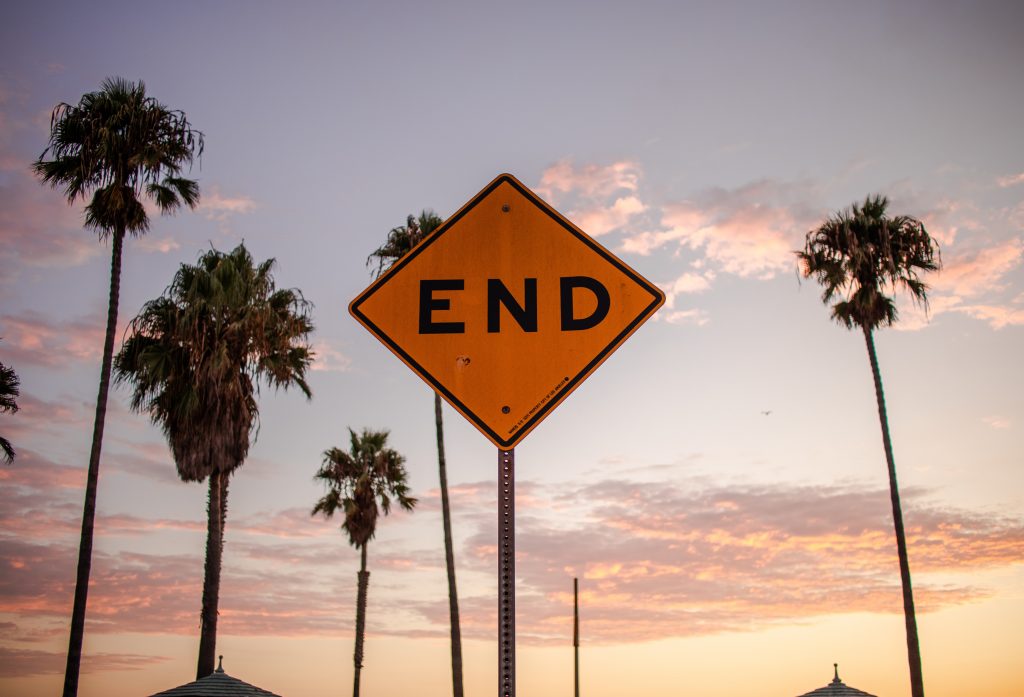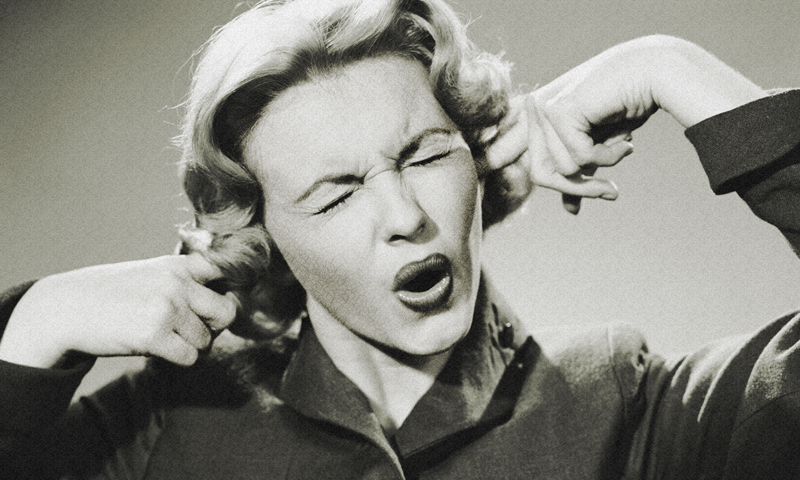So, there you are. You’re sat at a table eating dinner in a restaurant. You’ve seen them coming from out of the corner of your eye. Anxiety eats at you as you know that you will probably be next.
You hear them approach before a dirty hand is thrust in front of your face. You sit there, head down, eyes focused upon the half-eaten meal before you. A part of you wonders if they will snatch the food from your fork? You lower it, just to be sure.
Your eyes are drawn to the book being clutched in the hand as they motion with a ‘take it’ gesture. They mumble something incoherent as they repeat the gesture. You hold your breath.
Time seems to stand still and then, reluctantly, they shuffle on. You cast a furtive glance up as they move to the next table and notice the crumpled paper stuck on the back of their ragged coat. It reads: ‘Beware: Indie Author’.
Sound familiar?
A great many indie authors will shuffle up to you at some point with the sole purpose of selling you their book. They might chat with you, ‘like’ you, ‘follow’ you, but they don’t care about you as a reader. You are their next cup of coffee, their next bagel, their next notepad. All they want is your money. You can block or ignore their overly aggressive pursuit, but for every person that you do, there is probably another ten waving their books in the air begging for your attention.
Before you light the torches and hand out the pitchforks, it’s true that not every indie author out there is looking to batter you senseless with cringe-worthy advertisements or rip your head off because you didn’t like their book. Some indie-authors write for the pleasure of writing first and foremost. Financial rewards are secondary; seen purely as recognition for the quality they have crafted. Others find a balance somewhere in between. Some indie-authors are even quite pleasant.
Don’t turn your back for too long, however, for the shambling horde of screaming and moaning indie-authors in search of reader’s brains appears to be growing.
With the introduction of eReaders and KDP, it became possible for everyone and their dog to become an ‘author’ overnight. As a result, there are thousands upon thousands of books out there all claiming to be the next best thing, the heir to the throne of (insert popular author name here), or the new literary god(dess).
Don’t get me wrong, there are many indie books in publication that are original, refreshing, and superbly written. There are even indie-authors out there that could offer a challenge to mainstream authors (and do). Unfortunately, the good books can sometimes be hard to find, being picturesque islands stranded within an ocean of faeces that threatens to indelibly stain the name of self-publishing.
There are indie-authors that will disagree with me, but I feel certain that many self-published books would never see the light of day if they had to go through traditional channels to reach publication.
What follows are five do’s and don’ts related to self-publishing and indie authors in particular. These are my own thoughts and observations. You, as a thinking individual, are free to ignore, hate, or approve as you see fit.
WARNING: I cannot add the disclaimer that no indie authors
were hurt during or by the writing of this piece. Please, proceed with care.

1) Don’t Rush to Self-Publish – Do Go Traditional
That’s right, I said it. I’m probably going to hell anyway.
Speak the words ‘self-published’ to many readers and the response you get will not always be the positive response you had hoped for. Let’s face it, peel back the glossy new sticker that reads ‘self-published’ and underneath you will find an old, sticky, one that reads, ‘vanity published’. You can’t blame the change in phrase, after all, ‘indie author’ sounds a lot better than ‘vanity author’.
I recently received an email from a writer asking me if she should go the traditional route or, in her own words, “bite the bullet” and self-publish. Without hesitation, I suggested they try the former.
What? Why? Well, if you took the time to write a book then you owe it to yourself to approach a literary agent or publisher and see what they think. You can self-publish a finished work in moments so it really doesn’t matter if you wait a few extra weeks/months beforehand for a response from a literary agent or publisher. You can make a start writing your next book while you wait.
“If you write one story, it may be bad;
if you write a hundred, you have the odds in your favor.”– Edgar Rice Burroughs
Of course, there are good arguments against this and in some cases, I would agree. For instance, it is virtually impossible to get a collection of short stories published traditionally if you have never published before, do not have an agent, and don’t know anyone in the industry. It is often extremely hard to get the first book of a trilogy through the door, especially if you haven’t actually written the other volumes. It certainly isn’t impossible, but it is not going to be easy (unless your work screams talent).
In these cases, and especially so with smaller works of fiction, your best option might well be to try self-publishing first. At the very least, it will give you a ‘foot in the door’ and begin something akin to a portfolio that you can refer to when you try approaching publishers or agents with fresh work.
Apart from this, ‘freedom’ is also an argument commonly used by indie-authors to explain why they chose to self-publish. Freedom to make decisions over every aspect of their work. Yes, it is nice, but I guarantee you now that if they were offered a book deal by a mainstream publisher they would snatch that offer up in the blink of an eye. It is no different in some respects to the music industry. A band might start out independent and love the freedom they have, but when the big companies come calling they more often than not take the best deal on offer. Is it selling out? That really depends upon your outlook. Do you see the glass half full or is it half empty? You see, you could look at it as recognition for your talents.
Public perspective may be changing towards self-published work, but it is slow. For every book of quality, there are hundreds, if not more, that are pure cack. The average reader understands the difference in quality when it comes to a lot of self-published books, and let’s face it, there is no standard that a self-published book needs to achieve. Sure, readers will vote by not buying a book, but the fact is that the damage has already been done by its publication.
You would hope that the actual writing process itself would deter some people. That doesn’t always seem to be the case. There is an ever-growing number of indie authors that jump into self-publishing without ever trying to find a traditional publisher. Why? Because it seems easy. Many believe that self-publishing is a gold-paved road leading to fortune, glory, and multi-million film deals. It isn’t.
“The writer writes in order to teach himself,
to understand himself, to satisfy himself;
the publishing of his ideas, though it brings gratification,
is a curious anticlimax.”– Alfred Kazin

2) Don’t Spend, Spend, Spend – Do It Yourself
Still here? That either means you’ve decorated your living room with rejection slips or just skipped over point 1.
Indie-authors often spend fortunes on self-publishing and marketing. In my opinion, and remember that it is only my opinion, that puts you in the realm of old-school vanity publishing. Unless you just want a pretty book on your shelf to dust and bring out when guests come for dinner, don’t waste unnecessary amounts of money on publishing. The chances of a self-published book being an overnight bestseller are… do you really need me to tell you?
A lot of Indie-authors harp on about having an amazing cover. It is true. No matter how often you hear the old adage, “Don’t judge a book by its cover”, we, as a society, always do.
You can sometimes spot a self-published book just by looking at the cover. A poor cover can speak volumes of the work itself. Sadly though, bad writers with money to throw around are financially able to wrap their dross with eye-catching artwork thus ensnaring the unwary reader. It is only when you start reading that you feel the icy fingers of dread creep along your spine. From the poor editing, or lack of it entirely, combined with the lacklustre content, you immediately realise that you’ve picked up… a self-published book.
The good news is, you don’t need to donate organs just to tidy your book up. Sure, not everyone is an artist, but if you’re creative enough to write a good book then you’re creative enough to think up a decent cover. Sometimes, a simple cover captures the attention a lot more than something overly complicated or crowded. I’ve read, as I am sure some of you have, some great books picked up in musty bookstores that have no cover art at all. I have an old leather-bound copy of ‘The Adventures of Sherlock Holmes’ that has no author name or title upon it. I picked it out purely because of the dark-red colour and the single icon on the spine: a pipe. It worked for me, maybe not for you.
Personally, I look at creating the artwork as an extension of the book itself. It is something the author should try their hand at. As I said before, you wanted the freedom of being an indie author, well, embrace it. There are plenty of online videos out there that show you how to use photoshop or illustrator. In this age of apps, there are plenty of lite image-editing applications out there that will do the job for those terrified by anything Adobe.
Of course, if you’re all dried up and empty when it comes to artwork then you’re going to have to pay for it. It will not be cheap. It isn’t always easy finding a quality artist either. There are a lot of shady artists out there just as there are shady indie authors.
You’ll see websites and tweets mentioning ‘Ready-made’ covers that you can buy and ‘personalise’. Don’t fall for it. Get something specific and personal. If you can’t create the artwork yourself then at least ensure you are part of the creative process as regards telling an artist what you want. Face it, if you can’t come up with a creative idea for a good cover then what chance have you got of being creative with your writing? And don’t whine to me about it being a different medium.
Now, if you’re serious about writing then you should learn more about your craft. You don’t need to shell out for a strict and inspiration-sapping writer’s workshop or anything like that. Start by reading more. Not just novels in your genre of preference, but try classic works, books that feed the writer’s brain.
Talking with other writers and sharing experiences can be useful. You do need to find the right people though. It is too easy to just jump into the local writer’s group in your area (if there even is one) and hope to improve your craft. Writers are often very similar to psychopaths in that we are individuals for much of the time. When we are ready to display our work, our designs, then we present it to the world (through different mediums of course) and seek a social response.
When editing, take the time to really go over your work before you stamp a finished label on it. Don’t rush. You can email chapters to another account that you have or possibly a helpful family member (that you can trust is not going to run off with your book). As is often the case, you notice common mistakes a lot more when you click ‘send’ on an email.
If you have never done any editing/proofreading before then read up on it or try an online course. This is one of the few things I would recommend spending a little money on as it will benefit you beyond the span of one book (and it shouldn’t set you back more than £20-30). Knowing the systems of proofreading can be extremely beneficial to your writing.
“Proofread carefully to see if you any words out.”
– Author Unknown
I know there will be some indie authors that will scoff at the thought of solely editing/proofreading a book yourself, but really, the only way to improve your craft is to practice. Don’t assume that someone else can do a better job than you yourself can do. Practice makes perfect.
Of course, if you feel that you need to hire an editor, then do so. I think you are letting yourself down a little, but it is better than publishing a mess. Don’t be one of the lazy indie authors who finish writing their book and half-heartedly go through it once or twice before rushing to upload it. You may scoff and claim to know hundreds of indie author’s who are all professional grammar nazi’s, but I assure you that there are many more out there publishing gibberish and claiming that it is their ‘voice’.

3) Don’t Jump On The Bandwagon – Do Be Original
“Fill your paper with the breathings of your heart.”
– William Wordsworth
We all begin life as readers. While I like various books, I can be very specific on what type of story I like to read. The smallest detail can destroy a book for me, no matter how well written it is. It could simply be the main character’s name or an over-usage of modern words in a fantasy setting.
I enjoy vampire stories. Admittedly, there are not that many great ones out there. I have very specific vampiric tastes regarding appearance and what they can and cannot do, etc. If you like vampires stories too then the chances are you’ve had to wade through the seemingly never-ending list of self-published books based upon teen vampires or vampire romance. Ever since “Twilight” thrust its sparkly self into the light of day, the number of indie authors that have jumped on the bandwagon is truly depressing.
The same also rings true for indie-authors publishing books about magic-using teenagers. Every one of them desperately seeking to scrape the leftovers from the “Harry Potter” bowl. Ever since the series ended there has been an explosion of teen magicians swamping the market.
For every indie author out there with an original voice, there are hundreds more that are nothing more than the copy of an imitation. Those that do have an original voice are often drowned out amidst the screams and moans from the horde of self-published damned clamouring for attention. The point here is short and sweet. If you’re going to write something then make sure it is original.
Self-publishing has a tarnished reputation because of poor quality and badly written books. Churning out another vampire book with a teenage crush is not doing indie-authors any favours. Originality and quality are the way forward. As I said earlier, everyone and their dog can write a book these days. What matters is the story itself.

4) Don’t Spam – Do Engage
So, you’ve decided to jump straight in and go the self-published route? “Welcome to Jungle… you’re gonna die!”
Being an indie author is hard. You are one in a million. You are nothing more than a half-blink in a Twitter feed of thousands. That still does not give you an excuse to spam your book every minute of the day in the frantic hope that someone will hear your cry amidst a tempest of screams.
I may be wrong here, but when I look at mainstream authors I like it is quite rare to see them spamming their books. When they do mention their book it usually related to a promotion, a giveaway, a book signing, or a new/upcoming release. More often than not, they simply retweet other people talking about their books.
Of course, many of these mainstream authors are already household names. They don’t need to build their ‘brand’. It already exists and besides, they all have PR companies doing much of the work for them. Even so, indie-authors could probably do a lot better for themselves if they spent less time spamming their books and actually trying to engage the potential reader as a person.
Any author that reveals something about their own interests or their inspirations while writing is more likely to draw my attention than just posting a book cover over and over again. The same is true for those authors that use automated services to post how many words they wrote that day. Why, as a potential reader, do I care? So you wrote 1500 words. So what? How about telling me something about what inspired you to write those 1500 words?
‘Brand building’ (or Brand ‘ME’ as I’ve heard some indie-authors refer to it as) should be approached from the perspective of a reader first and foremost and not that of a writer. Look at the things you hate as a reader and try not to make those same mistakes yourself. Personally, if I read something that inspires me or that I regard as interesting then it is far more likely that I will look that person up. I will probably visit their website and see what else they have to say. If I like what they are about then I might go and look at their book(s). If I like the book(s) then I will recommend it/them to others.
All too often, when a writer drapes the mantle of ‘indie author’ about themselves, they apparently lose the ability to engage anyone as a person anymore. The common assumption is frequently: those that shout the loudest will be the most successful.
“It’s marketing,” you’ll hear spouted. “It’s putting yourself out there,” another may cry. “It’s all about creating yourself as a brand,” spits another.
In all honesty, mass-spamming on Twitter does very little to promote yourself as an author or your book. To the potential reader, it can be off-putting and annoying. Personally, I feel that it makes you look like a bit of a wanker.
“One hates an author that’s all author.”
– Lord Byron
A great many indie authors take to Twitter so they can spam their book 24/7/365. In their eyes, it is a non-stop stream of free advertisement. Don’t.
Sure, as an indie author, you’ll want to post the odd notification regarding a book giveaway or perhaps a price reduction, however, posting forty-three of these notifications in the span of four hours is honestly just taking the piss.
Fortunately, you can often spot these indie authors. They usually follow 797 people in a day (before promptly unfollowing them in half the time). However, it is their Twitter feed that reveals their true nature. It will exist solely to promote the sale of their latest book. This will often be mixed up with posts promoting the sale of their latest book, but with a 5-star review attached. Then, just for colour, they will add a few more promoting the sale of their latest book, but this time mentioning a related book.
If you’re unlucky enough to follow one of these indie authors then you’ll probably find a heartwarming message, direct and personal, waiting for you. They will thank you for following them and then promptly ask you to have a look at their book, buy it, and like them on Facebook. Of course, being extremely busy spamming their book, they probably sent the message via an automation service (but it’s the thought that counts, right?).
There will be no personal content on their feed. No dialogue with existing readers. They will frequently retweet the book promotions of other indie authors. A good thing, you might say. Yes and no. Yes, because it helps other indie-authors get noticed (although you may find yourself being noticed as an annoying wanker too). No, because they are only retweeting you so that you can spam their own books on a regular basis.
Just because they are an indie author doesn’t mean they are promoting the cause in a good way. Again, I’m sure to receive some flak about this, but I can’t honestly agree that retweeting an indie author solely because they are one justifies the promotion of crap.
Some of the more ‘creative types’ like to spice things up once in a while and post a screen capture from Amazon to reveal they are the number one author in their category. If this is not the case, however, then they will post a screen revealing them to be the undisputed number one in a specific ‘tag’ (like ‘pins’ or ‘horse cocks’).
If you’re going to be an indie author, don’t be ‘one of those’ indie-authors. While I’m talking about social media and indie authors I should probably mention Goodreads.

5) Don’t Stalk or Whine – Do Use Common Sense
‘Goodreads’, as the title suggests, is a website intended for people who read books and love to talk about them. Unfortunately, there are a number of indie-authors loitering around the groups and forums that seem to feel Goodreads is a place where they can spam their books and pick up fresh readers ready for the kill.
Some indie authors (and it is only some) love to stalk readers. Fortunately, they are easy to spot. They tend to lurk in the corner of the room holding a bag of candy. In some cases, they join a reading group related to something they wrote about or perhaps a comments section of a mainstream author of the same genre. They strike up a conversation and have a laugh and a joke. They become your friend. After luring you in, they then mention that they are an author themselves. Guess what? They have written a book you may be interested in. They’ll give you a link and suggest taking a look, all the while drooling over their keyboard as they smell the money.
I’ll be honest, I’ve never been one for group-hugging and I rarely bother with the author groups on Goodreads. There is nothing wrong with these groups (well, most of them), but it just doesn’t do anything for me as a writer. Whenever I do stop by, it’s primarily as a reader. I am usually looking for something interesting or possibly something related to a story for research purposes. Now and then I will stay longer and update my books read or answer any messages. Grooming potential readers is just not something I’m interested in doing.
Of course, you probably want to be a successful author. Don’t we all? Building a readership is important of course, but there is a right and a wrong way to go about it. Common sense should give you the correct answer.
Before I stop prodding a sharpened stick at ‘those’ indie-authors on Goodreads, I should say that I have born witness to various posts that make me cringe. Please, think about what you are writing. This is a website primarily for readers. If you start whining about negative reviews written by readers (whether deserving or not) or asking people to come up with a catchy blurb for your own book, then what impression will that give about self-published authors in general?
To be honest, if you need someone else to write a blurb for your own book then you need to put your pen down, step away from the computer, and throw yourself out of the nearest window that offers the best chance of reaching maximum velocity.
I have already said that you need to engage people and not just shout loudly at them. I have lost count of the number of times I have seen discussions on how to deal with negative reviews. If you want to be an author, independent or not, you need to grow a thick skin. Fast. You also need to remember that, while you are trying to show a personal face to readers, you are also showing them you, the author. If you start whining and moaning about readers who give you bad reviews then it just shows a lack of professionalism and, again, marks you out as a bit of a wanker.
“A person who publishes a book
– Edna St Vincent Millay
willfully appears before the populace with his pants down.”
Not everyone is going to like what you write. Not everyone is going to be honest about it either. If the review is critical of your story then just accept it and move on. So they didn’t like it, boohoo. It’s not the end of the world.
If the comment is unbalanced or purely hateful, just ignore it. Don’t get into an argument with them. Don’t even respond. In fact, don’t respond to book review comments at all. On the same note, be careful about your own comments (unless you write anonymously). As soon as you claim to be an author you are no longer solely a reader. Any book reviews and ratings you make will be brought into focus. Your comments will be scrutinised (and probably twisted).
Personally, I set out a star-rating guide that I stick to and make known to readers and authors alike. That way, there is no misunderstanding should I hand out a 2 or 3-star rating. I very rarely write book reviews anymore and never for fellow authors. If a fellow author asks me for my thoughts on their book (and I have read it) then I will happily provide them, but I will not post them publicly. The same goes for rating books for authors that I know. If the book is good then I will happily recommend it or retweet it, but that is as far as it goes.
I am not suggesting you do the same. This is my own approach and you may find another way more suitable. I do ask that you give thought to your role as a writer-reader. Your decision will affect the way readers (and other writers) look at you.
Again, this is really just common sense. A quality that often seems to be in short supply these days.

Final Words
If you’ve made it this far and haven’t spat your beverage of choice at the screen in anger, then you probably understand, and maybe even agree (a little), with what I’m getting at. Some of you may argue against everything I’ve written here and praise the revolution that self-publishing has brought to the masses. I will agree that it has certainly changed the world of literature, although I remain sceptical as to whether it has been a change for the better.
I am self-published myself. Perhaps my own work is but one of the many that have done more harm than good. Like any writer, I would like to think not. It remains largely true, however, that self-published work is still considered by far too many to be substandard and tacky; lacking the prestige associated with traditional publishing.
In case you have missed my point, I am actually very passionate about writing. I am passionate about my craft to the point that I despair at the mass of badly written pages that threaten to suffocate those fine self-published books of quality that do exist.
First-rate and dazzling indie authors do exist and their numbers are growing. Some are doing very well. A large number of these indie-authors started self-publishing back when KDP and other avenues were still relatively fresh. Now, it is becoming clogged and stale, for while excellent self-published books are growing, the numbers pale in comparison to the grot that so often reaches our bookstores.
Of course, you may have a different opinion and you are entitled to do so. Something desperately needs to change if we are to ensure the quality of what is written and allow those writers out there with a voice worth hearing to actually be heard. I don’t have a solution to the problem. Those that could be implemented would no doubt eventually harm the essence of self-publishing.
It is for this reason that I often suggest writers try publishing via traditional roads before going independent. I am fully aware that not every book published by a major house is excellent, however, the standards in place and the groundwork often required to get published serve a purpose. The experience is often worthwhile, even if you fail. The feedback can be encouraging and insightful (but not always). If it doesn’t work out, but you believe in your book, then you can always fall back on self-publishing. You just dust yourself down, write another book and try again. Rinse and repeat.
I now politely request a 5-minute head-start before anyone raises a pitchfork in my general direction.
Cheers.
“The most essential gift for a good writer
– Ernest Hemingway
is a built-in, shockproof shit detector.
This is the writer’s radar and all great writers have had it.”





I agree with all your points. I spent 15 years on the traditional track, and had my trepidations about self-publishing. It’s good to understand the industry before deciding to go indie. Agents want what sells, so if your books are niche, expect a niche profit. Still, the beaten path exists for a reason, and there’s much to learn from it. Why reinvent the wheel? Ain’t nobody got time for that 😀
Very true. In many ways, it should be a rite of passage that all aspiring authors go through. The scars a writer carries from the experience will only strengthen themselves and their writing.
Well, I made it to the end and I agree with everything you said.
I don’t really have anything against self-publishing, but I do think most people self-publish without having the faintest idea what they’re doing, and that’s why they end up with such poor products and become bitter when things don’t go well.
I work for a publisher (who will never publish my books, they don’t publish my genre), and I’m very grateful of the things I’ve learned in the 10 years I’ve worked there. And I’m always surprised at how many authors have no idea what they are talking about, and the very deep lack of bare information they have.
There are things I take for granted because I see it happening every day at the publisher’s office, things that are really the basic of publishing, and still some author don’t even know that. Fine, you may never be lucky enough to work in a publishing house, but if you intend to publish your own work, I think you should at least be familiar with the standard process.
I’m going the traditional way at the moment, for the reasons you said: I know I still have a lot to learn and I think working with an agent and an editor may make me a much better writer. Sure, I could maybe learn the same things by working with professionals and self-publish, but honestly I don’t have the finances to support this at the moment.
This is another things self-published authors often don’t get: self-publishing is an expensive venture if you want to do it in a professional way.
I admire your honesty on this. I read posts from self-published authors everywhere who just praise the wonders of self-publishing, trying their hardest to convince authors going the traditiona route that that’s a fool’s errand. A friend of mine says there’s a way for anyone and I think that’s true, but I also think anything you try, you should at least be reasonibly informed.
Thanks for reading, Sarah. I enjoyed your comments.
I recently skimmed some ‘indie-author’ posts upon Goodreads that came from an individual asking what the term ‘indie’ actually meant. I do not lie. There are others that say they spent around $3,000 just to get their first book out. This is not self-publishing, but vanity publishing. It is too easy to throw money at someone to do the work for you and learn nothing about your craft. If someone spends that sort of money on self-publishing their book, and honestly feels it will make a profit, then they would do better approaching a traditional publisher or agent.
As you say, anyone interested in self-publishing should become familiar with the standard process first. A great many indie-authors reject traditional publishing without even trying. There were recent comments questioning why anyone would want to face rejection slips in the first place when they could just self-publish. It is exceptionally frustrating to read – these are the indie-authors that give the industry as a whole a bad name. There are far too many ‘authors’ out there that think self-publishing is the ‘golden ticket’ to fame, fortune, and a movie deal.
When I self-published “The Chalice” it was for three reasons: firstly, the story was a novelette; secondly, the story was unlikely to find a traditional market (being a combination of sport and fantasy); finally, I wanted to experience the self-publishing process.
Having spent several years looking for a literary agent and a publisher with different manuscripts (as detailed in the dusty archives of this blog), I knew something of the process involved. Despite the rejections, I felt it helped to tighten my writing. It also made me realise that I did want to be an author. As I commented previously, rejections and disappointment are the scars any writer should endure when undertaking that rite of passage to becoming an author.
Self-publishing does have its place and does have some exceptionally talented authors, but there are a great deal of negatives associated with it that make it hard for talented writers to get noticed. In some respects, it could even be more damaging than a simple rejection slip.
Nothing worthwhile is ever easy and success only comes before work in the dictionary.